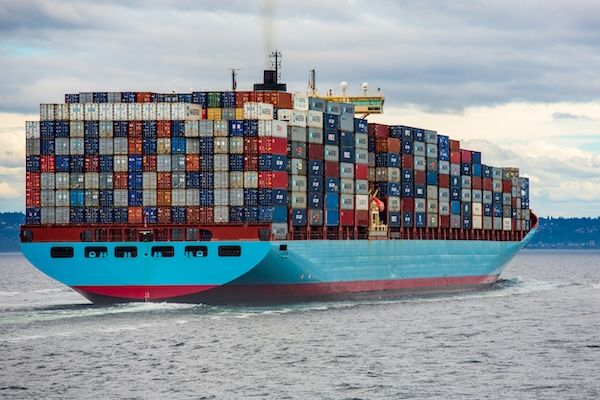The real cost of Drools isn't the license fee, it's the mandatory support subscriptions, the expensive and scarce developer talent required to manage it, and the complex infrastructure you have to build and maintain. When you conduct a true Total Cost of Ownership (TCO) analysis, the "free" option quickly becomes the more expensive one. We're going to show you how a supported Drools implementation isn't just double the cost of DecisionRules—it can be over five times more expensive.
The Enterprise Asterisk: Why "Free" Drools Is a Fiction
The community version of Drools is suitable for experiments and academic projects. For a mission-critical enterprise system, it is a non-starter. To run Drools in production, you must use its commercially supported counterpart, Red Hat Decision Manager. The alternative is to operate without the following non-negotiable enterprise requirements:
- Guaranteed Support SLAs: What happens when your system goes down at 2 a.m.?
- 24/7 Technical Support: Who do you call?
- Critical Security Patches: How do you protect yourself from the next major vulnerability?
- Proactive CVE Monitoring: How do you know you're vulnerable in the first place?
- Official QA & Certification: Is it guaranteed to work with your specific database and JDK?
No responsible leader would build a core business function on a platform that answers "I don't know" to these questions. This reality means the cost discussion isn't about "free" vs. "paid." It's a direct comparison between two commercially supported products: Red Hat Decision Manager vs. DecisionRules.
This is where the real analysis begins, and it starts with the mandatory Red Hat subscription fee, which can easily exceed $10,000 per year just to get started.
Hidden Cost #1: The War for Specialized Talent
The Red Hat subscription fee is just the beginning. The single largest hidden cost in any Drools implementation is personnel. The complexity of the Drools ecosystem requires you to hire a very specific and expensive type of employee: a senior Java developer with proven, hard-to-find Drools expertise. You are now competing for a scarce talent pool, paying premium salaries, recruitment fees, and retention costs just to manage your rules.
In stark contrast, DecisionRules is designed to be managed by the people you already have. Our intuitive, low-code interface empowers your existing business analysts and junior developers to become proficient with minimal training. This doesn't just lower your personnel cost; it fundamentally changes your operational model, allowing you to leverage your existing team instead of hiring expensive specialists.
Hidden Cost #2: Building and Maintaining the Platform
When you choose a self-hosted Drools environment, you are also choosing to take on a second job: platform management. You are now responsible for the significant cost of building and maintaining the entire infrastructure stack—application servers, databases, load balancers, and more.
This also requires the constant attention of your expensive DevOps and SRE teams, who must now dedicate their time to patching, monitoring, securing, and scaling your rule engine. With the DecisionRules SaaS model, this entire category of cost and complexity is eliminated. All infrastructure and maintenance is handled by us and bundled into a single, predictable subscription fee. You get to focus on your business, not ours.
| Cost Factor | Red Hat Decision Manager (4 Cores) | DecisionRules (Unlimited Cores) | Notes |
|---|---|---|---|
| Annual Subscription | ~$10,400 | ~$9,600 (€799 x 12) | Initial subscription costs are comparable. |
| Specialized Personnel | Est. 0.5 FTE Sr. Java/Drools Dev @ $150k/yr = $75,000 | Est. 0.1 FTE Business Analyst @ $90k/yr = $9,000 | The cost of specialized expertise is the largest differentiator. |
| Infrastructure & Maint. | Est. $10,000/yr (servers, DevOps time) | $0 (Included in SaaS) | Operational overhead is eliminated with DecisionRules. |
| Implementation Time | Est. 4–6 months | Est. 2–4 weeks | Faster time-to-value provides a quicker return on investment. |
| Total Estimated 1-Year TCO | ~$95,400 | ~$18,600 | The total cost of a supported Drools implementation can be over 5x that of DecisionRules. |
The Clear Choice: A Transparent Model for a Predictable TCO
In contrast to the opaque, quote-based pricing of the Drools ecosystem, we believe in radical transparency. Your budget should be predictable and your financial planning simple. Our publicly available pricing plans are designed to be all-inclusive, bundling the platform, hosting, maintenance, and enterprise-grade support into a single, clear fee.
There are no hidden infrastructure costs and no need to hire an army of specialized developers. Let's look at a realistic, side-by-side comparison of the total cost of ownership for a typical enterprise use case.
The illusion of "free" is a costly one. As the TCO analysis shows, a production-ready Drools implementation isn't just more expensive than DecisionRules—it introduces a level of cost and complexity that is unpredictable and difficult to manage.
The final choice is clear. It is a choice between a legacy ecosystem with high, complex, and unpredictable costs, and a modern platform that offers a transparent, predictable, and dramatically lower total cost of ownership. It is the choice between managing hidden costs and delivering business value.
Ready to see what a transparent, predictable TCO can do for your budget?

Petr Lev
CTO of DecisionRules
